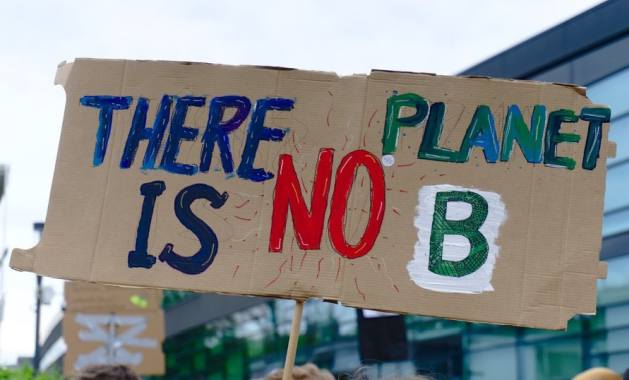Confronting a Worsening Climate

While the Biden Administration has taken executive actions to tackle climate change at home and abroad, through upgrading and building infrastructure, and committing to halve US greenhouse gas emissions by 2030, we are yet to see the impact.
URBANA, Illinois, Jul 21 2021 (IPS) - Across the United States, the last few months have brought along many climate-linked disasters. From surging wildfires in Hawaii to record-breaking Pacific Northwest heat waves to drought across the western states. The southwestern states also have seen heavy rains that resulted in flash flooding events.
Importantly, these climate-linked events have occurred in regions that had not been impacted before because of geography, sending the signal that no one is immune to climate change. We all must act with urgency to mitigate this existential threat, as described by President Joe Biden.
As new record-breaking events occur, pausing for a moment to wonder about the next record-breaking event becomes natural. What would it be? Where? Who else who was insulated before will be affected now?
Science delivered in a year a vaccine that traditionally takes 5 -10 years, thanks to generous funding by the government and the private sector. With increased funding by the government and private sector, scientists can collaborate across disciplines to uncover bold solutions to confront climate change
These renewed and heightened public awareness about climate change and the dangers that we all face, if we do not mitigate it, creates an important moment for all of us including policy makers at both the state and federal level to roll out bold reforms.
First up is the need to ensure that ordinary people have the most recent research and data about climate change. The National Oceanic and Atmospheric Administration provides timely data, tools, and the information about climate.
The United Nations Intergovernmental Panel on Climate Change further provides policymakers with scientific assessments on climate change including highlighting climate adaptation and mitigation options.
In addition, agencies such as NASA and the United States Environmental Protection Agency also provide very robust scientific data to understand climate change and how to mitigate it. Further, states, including those facing these disasters at the moment such as the State of Oregon, have information about climate change and actions they are taking to address it.
Beyond national agencies are several websites and newspapers that have enormous sources of information about climate change.
While having most recent data is important, communicating what these climate change research and data means clearly and consistently to citizens is key. Moreover, there will be a need to broaden and focus on the framing, so as to engage many citizens.
Beyond sharing knowledge and communicating about climate change, both federal and state governments must enact bold and transformative climate change policies.
While the Biden Administration has taken executive actions to tackle climate change at home and abroad, through upgrading and building infrastructure, and committing to halve US greenhouse gas emissions by 2030, we are yet to see the impact.
It will take another nine years to halve greenhouse emissions. As seen, year after year, the disasters are getting stronger, and nine years is a long time to wait for change.
Governments need to re-strategize and develop immediate climate mitigation and adaptation actions that can be achievable in shorter timeframes. Alongside re-strategizing, all government ministries and agencies and sectors need to re-examine how vulnerable these sectors are to climate change.
Furthermore, they should outline what actions need to be taken to ensure that all sectors can withstand the changing climate. It is encouraging to see the Treasury Secretary Janet Yellen leading efforts to review and assess the risks that climate change have on the financial stability of the U.S. Many more sectors including the agriculture and energy sectors need to engage in this type of review too.
Complementing all efforts to address climate change is the need to increase funding to climate science research. From research aimed at finding novel approaches to remove carbon dioxide from the atmosphere to finding low -carbon -climate smart technologies to advanced energy research to climate modelling and simulation studies to understanding how the ecosystems respond to and recover from climate-linked disasters.
As we have seen with COVID-19, science can deliver solutions. Science delivered in a year a vaccine that traditionally takes 5 -10 years, thanks to generous funding by the government and the private sector. With increased funding by the government and private sector, scientists can collaborate across disciplines to uncover bold solutions to confront climate change.
Finally, there is need to ensure that all sectors impacted by climate change adapt and act. From planning for extreme temperatures, heat waves, surging wildfires, and flooding to building more resilient communities and cities.
In the fight against climate, governments must lead the way. Time is of essence.
Dr. Esther Ngumbi is an Assistant Professor at the University of Illinois at Urbana Champaign, and a Senior Food Security Fellow with the Aspen Institute, New Voices.
- ADVERTISEMENTADVERTISEMENT


IPS Daily Report







